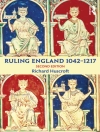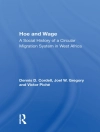In a history book that looks at things from a different angle, Come Here To Me!: Dublin's Other History discusses everything from punk music and stand-up comedy venues to pirate radio stations and drug use in Dublin city. It talks about fire-fighters, newspaper boys, street gangs, gay bars and footballers, as well as our changing attitudes to feminism and sex . . .
Dublin's Social History, as seen through the eyes of these historians, is to be found hidden in the small details everywhere, from the design of its shopfronts to the graffiti scribbled on the walls of its pubs. In this beautifully illustrated hardback, Donal Fallon, Sam Mc Grath, and Ciarán Murray bring the best of their hugely popular blog, Come Here To Me: Dublin Life & Culture, to a new audience. Bringing a fresh, new perspective to their historical snapshots of the life of Dublin city, the authors have written dozens of new articles for this publication.
The book also features new images, alongside its healthy dose of bizarre and wonderful tales of Dublin's hidden history.
Tentang Penulis
Donal Fallon is a Dublin-based historian. Previous publications include a biography of Major John Mac Bride (O’Brien, 2015) and a history of the Nelson Pillar (New Island, 2014).
Sam Mc Grath is a Dublin-based archivist and historian. He is currently employed on a project to process and catalogue the Military Service (1916-1923) Pensions Collection. Combining his love of music and history, he has worked on archival projects with U2, the Joe Strummer foundation and The Atrix. He has recently published articles on Arthur Wicks (a Norwich-born socialist killed in action in the 1916 Easter Rising) and Jack Prendergast (a Dubliner who fought with the Basque Army in the Spanish Civil War).
Ciarán Murray is a Mullingar native, but has been living in Dublin since 2001, when he came here to study for a degree in English and Philosophy in UCD. His main topics of interest include Dublin’s revolutionary history, street characters and ever-changing landscape. He has contributed to the College Tribune, Rabble and History Ireland.












